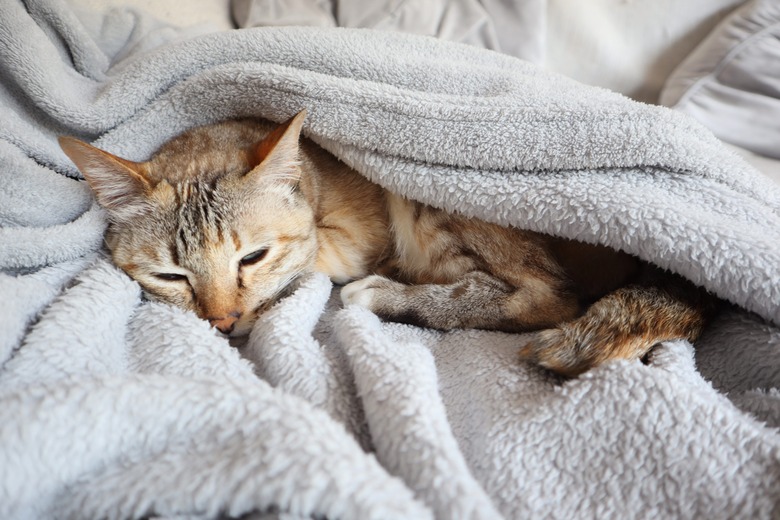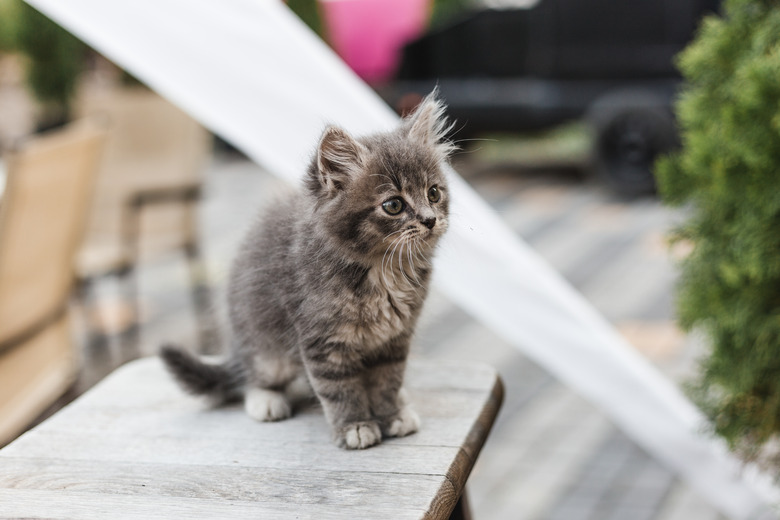How To Make A Homemade Cat Wormer
Most cats will be infected with an internal parasite at some point in their lives, most likely as kittens. There are ways to make a homemade cat dewormer, however, you should always consult your veterinarian first. The most common parasites that a cat faces are roundworms, hookworms, and tapeworms. These can be life-threatening and must be treated quickly. A veterinarian can prescribe common medication that will rid your cat of these parasites. Your vet can also recommend the best tapeworm medicine for cats.
Homemade cat dewormer DIY
Homemade cat dewormer DIY
There are a few items you can use at home to make a homemade cat dewormer. You may even have some of these items on-hand, such as garlic or raw pumpkin seeds. Others you may have to purchase, such as diatomaceous earth. They are available in most retail stores, or online. There's no guarantee that natural, homemade remedies will work as well as powerful medicine from a veterinary office, but it's a good place to start.
Sprinkle diatomaceous earth on food
Sprinkle diatomaceous earth on food
Add food-grade diatomaceous earth to all of your cat's meals. Diatomaceous earth is a sedimentary rock that can be ground to a powder and sprinkled on food. It is often used as an insecticide because it absorbs lipids from insects and kills them through dehydration. Many farmers use it to deworm livestock. Sprinkle about a half teaspoon on each meal. Use a spoon to mix it in, so kitty is less likely to turn up her nose at the food bowl, as cats are sometimes apt to do.
Try some minced garlic
Try some minced garlic
Mix fresh, minced garlic into your cat's food once a day. Though it may act more as a preventative, garlic might help kill present parasites as well. The only trouble might be getting your cat to eat her food with the slight change in flavor. Start with very small amounts of garlic — just a pinch — and increase it as your cat grows more used to the smell and taste. Eventually, she may actually grow to prefer the taste.
As mentioned above, it's always a good idea to mix whatever you're adding with a spoon to mask the new ingredient. Caution: larger amounts of garlic can be toxic to both cats and dogs. Be sure to use only a tiny amount of garlic as stated above.
Fasting for 24 hours
Fasting for 24 hours
Put your cat on a one-day fast. If your cat is otherwise healthy, a 24-hour fast can help clear out parasites, which cannot last as long without food. This can be done once a week without threat to your kitty's health. Be sure to have plenty of fresh water on hand during fasting. Cats should never be without a water source, especially when fasting.
Feed kitty raw pumpkin seeds
Feed kitty raw pumpkin seeds
Raw pumpkin seeds can be found at most grocery stores nowadays, or at a health food store. Be sure you don't get the cooked pumpkin seeds, which are white — you want the green ones, which are sometimes called "pepitas." Grind up raw pumpkin seeds and mix them in with one meal per day. This is especially effective against tapeworms. Grind the seeds fresh every day, rather than grinding a large amount and saving it for use throughout the week. About 1/4 teaspoon is all you need for each meal.
Preventative measures for cats
Preventative measures for cats
Keep your cats inside to prevent them from being infected with internal — and external — parasites. Clean their litter boxes every day, and empty and wash litter boxes weekly. Be sure that multi-cat households have one litter box for each cat, plus one extra. It's also a good idea to have a veterinarian check stool samples annually. To get a sample from each cat might be challenging. Isolating cats from each other temporarily should enable you to get a sample easily enough.


